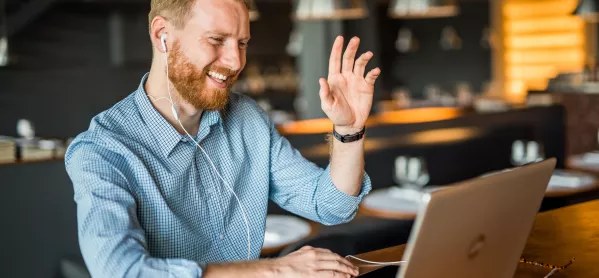I have written before about why we should be sceptical when it comes to the wilder claims made by pedagogical soothsayers about the future of schools in a post-Covid world.
Some of these commentators have never taught, or left the classroom a long time ago, or perhaps have vested interests in seeing schools buy hardware and software for their staff and students.
We have to hope that we cherish anew how essentially human schools are, with all the emotions and interactions that they contain.
But, of course, some things will have changed forever. How could they not?
A workforce has been forced to adapt how it works almost literally overnight, and much will have been learned from this - perhaps some of it for the better for the lives of teachers, pupils and parents.
Coronavirus: How the crisis has brought positive change in schools
These are four ways I think schools could improve by retaining the new ways of operating that the coronavirus pandemic has created.
1. Parents’ evening
Five years ago, I asked, “What is the point of parents’ evenings?” We may now have the answer.
Why drag hundreds of people into one room on one day a year for often shallow character analyses that can be done much more effectively and conveniently via a laptop or mobile phone?
The challenge for school leadership teams is to ensure that discussions will be professional, and that staff will be able to meet parents, virtually, in a supportive environment.
And that might mean that line managers “sit in” on discussions. But those interactions can be more meaningful and constructive, and conducted at a time when they are likely to have the greatest impact, when they are taken out of the sports hall and from behind the teacher’s desk. Move them online.
2. Fewer meetings
Coronavirus should make all of us rethink how we use our time. Meetings clog up our days, and the higher up the hierarchy you go, the more you have to attend.
Many are unnecessary, and almost all go on too long.
We can hope that when we return to our schools many of those “essential” committees and sub-committees are not reconvened, or if they are then they are done via Zoom and are short and focused, rather than lubricated by endless weak tea and damp biscuits.
Let’s have “unmeetings”: virtual get-togethers with very short agendas. In doing so we will be able to spend more time with our students.
3. Improved governors’ meetings
Governors’ meetings are usually better conducted via laptops: 100 per cent attendance should be guaranteed, and people will actually listen and focus more when they are visible in that Zoom gallery view, that sad pastiche of Celebrity Squares.
Insisting that comments are sidelined to Chat often leads to more constructive and disciplined discussions, the written and self-edited word being more considered than the spoken and unfiltered streams of consciousness.
4. Better, easier parental engagement
And at the cost of becoming a futurologist myself, perhaps our schools will become more open spaces.
If they have the ability to do so, we should welcome parents joining assemblies and presentations from their homes and offices to celebrate the successes that we see daily but are missed by many; we should open the classroom door to show them what achievements are accomplished every day, by their children and their teachers.
With schools in control of technology, we can shrink the historical social distancing, creating ever stronger bonds between teachers and home.
Is it too optimistic to hope that many will now realise how complex and difficult teaching is?
Perhaps with the new, collective knowledge, gained from weeks of real experience, our schools and staff will be valued, trusted and, crucially, understood, even more.
David James is deputy head (academic) at a leading UK independent school




